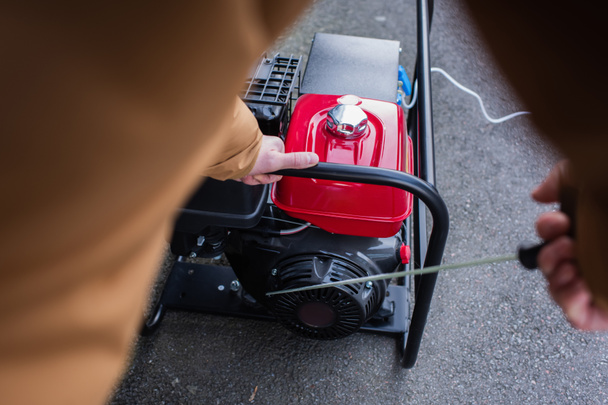Preparing for Winter: Generator Safety Tips

Understanding the Risks
Generators are invaluable when the power goes out, providing electricity to keep essential appliances running and ensuring some semblance of normalcy during an outage. However, their improper use can lead to carbon monoxide poisoning, electrical fires, and other dangers. According to the Centers for Disease Control and Prevention (CDC), carbon monoxide poisoning from generators results in hundreds of deaths each year in the United States alone.
Proper Installation Matters
Proper installation of a generator is crucial for its safe operation. Here are some essential tips to keep in mind:
- Location: Place the generator outside your home, away from doors, windows, and vents where exhaust fumes could enter. Keep it at least 20 feet away from your house to prevent carbon monoxide from seeping indoors.
- Ventilation is Key: Ensure proper ventilation around the generator to prevent the buildup of carbon monoxide. Never run a generator in an enclosed space such as a garage, even with the door open.
- Grounding and Connections: Follow manufacturer instructions for grounding the generator and connecting it to your home’s electrical system. Improper connections can lead to back-feeding, where electricity flows back into power lines, posing a danger to utility workers and your neighbors.
- Fuel Safety: Store fuel in approved containers in a cool, well-ventilated area away from living spaces. Keep fuel away from any potential sources of heat or sparks.
- Regular Maintenance: Perform regular maintenance checks on your generator, including oil changes and filter replacements, as recommended by the manufacturer. This ensures it operates efficiently and reduces the risk of malfunction.
- Use Heavy-Duty Cords: Use heavy-duty, outdoor-rated extension cords to connect appliances to the generator. Ensure they are rated for the wattage of the appliances you are powering.
Educate Your Household
Everyone in your household should be aware of generator safety protocols. Make sure family members understand the risks of carbon monoxide poisoning and know how to recognize its symptoms: dizziness, nausea, headache, and confusion. Install carbon monoxide detectors in your home, especially near sleeping areas, to provide an early warning if levels become dangerous.
As we prepare for winter and the potential for severe weather, the reliability of a backup generator can bring peace of mind. However, ensuring its safe operation is paramount. By following these generator safety tips and educating yourself and your family, you can enjoy the benefits of backup power without unnecessary risks. Stay safe, stay prepared, and let’s navigate this winter season with confidence and caution.
